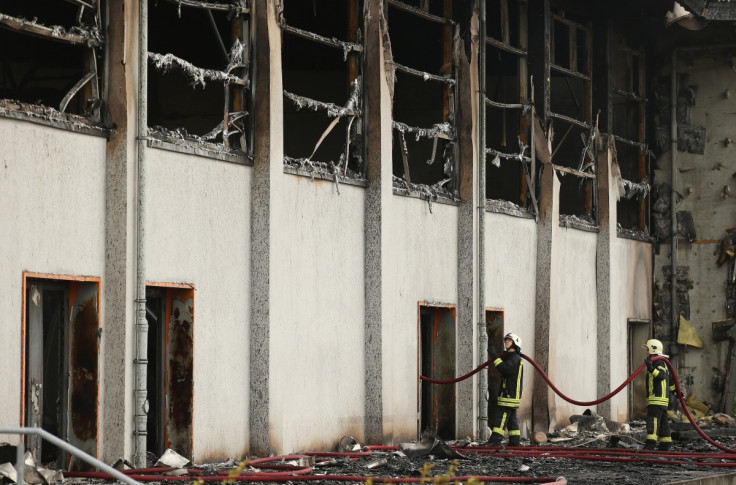Expanding far-right networks coordinating refugee attacks in Germany, claim security experts

Expanding far right networks are coordinating arson attacks on refugee hostels in Germany, security experts told Der Spiegel. In recent months there have been escalating numbers of attacks on asylum centres in Germany as well as assaults on refugees. An arson attack on a planned asylum hostel in Nauen on Monday, outside Berlin, was the fifth in the country in a week.
"The continuity and number of attacks can't be explained except by assuming organized structures," Fabian Virchow of the Working Unit Neo-Nazism at the University of Applied Sciences in Düsseldorf, told the magazine.
Speaking after neo-Nazi protesters clashed with police outside a new asylum centre in Heidenau near Dresden in August, German Chancellor Angela Merkel said that "full force of the law" would be felt by those who insulted or attacked refugees in the country.
More than 800,000 refugees are expected to arrive in Germany this year, with many welcomed and German authorities overwhelmed by donations from the public. However, there has also been an upswing in racist violence, with 173 attacks against immigrants accommodation recorded in the first six months of 2015, three times as many as during the same period the previous year.
Earlier this year the German Interior Ministry said there was no evidence the attacks were centrally coordinated. But German security forces faced serious criticism for failing to recognise the existence of far-right terror cell the National Socialist Underground, which carried out a series of racist murders between 2000 and 2006, and experts argue that there is evidence of centrally controlled networks spreading far right terror. Andreas Zick, head of the Institute for Interdisciplinary Research into Conflict and Violence at the Bielefeld University, told the magazine his research had uncovered "right-wing cells that can strike in a guerilla-like manner and which are networked with one another".
Investigators are probing far-right group the Third Way, that has allegedly coordinated anti-immigrant activism and attacks in towns across Germany, and distributed a booklet advising groups on how to campaign against the establishment of asylum centres.
In hotbeds of anti-immigrants sentiment there has been surging support for far-right parties. In Saxony, where 42 of the violent attacks against refugee centres took place in the first half of 2015, the National Democratic Party (NPD) recently outpolled the centre-left Social Democrats, and protests by populist anti-immigrant group Pegida drew tens of thousands in state capital Dresden. The state's economy minister Martin Dulig said on Wednesday, 2 August 3 the increase in racist violence threatens "an economic disaster if hatred of foreigners destroys the image of a Saxony that is modern and open to the world".
© Copyright IBTimes 2025. All rights reserved.






















